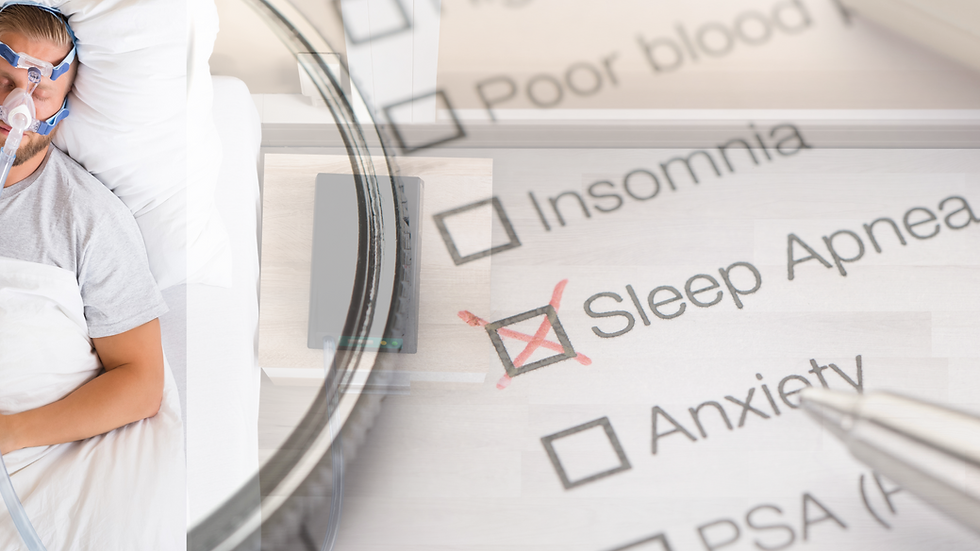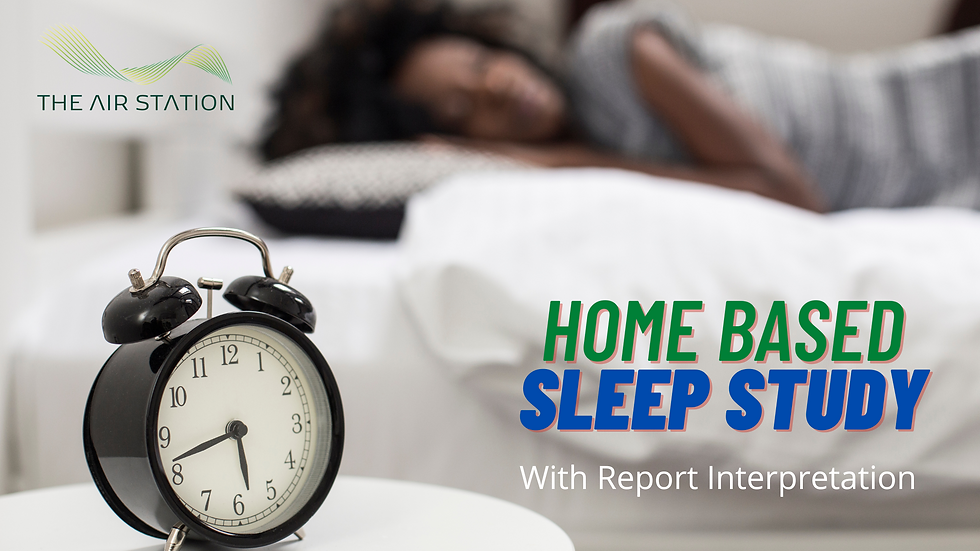What Happens in a Sleep Study?
- isaiahchoo6
- Jul 28, 2022
- 3 min read
When it comes to sleep studies, it can be hard to know what to expect. A sleep study is a test that records your body's activity during sleep. Sleep studies help doctors diagnose and treat a variety of sleep disorders, including sleep apnea. A sleep study is one of the best tests available to detect sleep disorders.
Before the Sleep Study
Before the in-lab sleep study, it's important to follow your usual sleep schedule. If you're a night shift worker, your shift schedule may be affected. Regardless, most people sleep enough to complete the test. A sleep study helps you make an accurate diagnosis. When it's done properly, it can help diagnose sleep disorders.
You should avoid drinking caffeine-containing beverages, alcohol, and spicy foods. These substances can disrupt your sleep and may affect your breathing. It is also advised to avoid naps. If possible, wash your hair with shampoo before the sleep study, and make sure it's completely dry. Hair products, like conditioner, can interfere with the sensors during the in-lab sleep study, so be sure to avoid hair products before your sleep study.
What to Expect in In-lab Sleep Study
The first step is to get yourself prepared by knowing what to expect. Before the in-lab sleep study starts, you'll be asked to lie on a sleep study bed with recording devices attached to your head. The recording boxes are connected to a cable in the monitoring room. During the sleep study, the technologist will communicate with you over a two-way intercom to ask you to do a series of maneuvers for calibration. These maneuvers can include opening and closing your eyes, sticking your tongue, flexing your legs, and holding your breath.
Next, the technician will attach electrodes to your head and face. These electrodes will measure electrical activity in your brain. A technician will place a special pencil in each of these locations to determine where to place the electrodes. This pencil is then removed and you'll wash your face with soap and water to ensure the electrodes stick well to your skin. In addition to these electrodes, you'll also have an electroencephalogram (EEG), an otoscope, and eye movements recorded.

After the Sleep Study Results of the in-lab sleep study are not immediately available. It may take up to two weeks to receive the final results. After the sleep study, you will be contacted by the doctor who ordered the study. Depending on the severity of the problem, it may be necessary to see a sleep doctor to determine the appropriate treatment. It may be beneficial to have a sleep study, even if it doesn't reveal any sleep problems.

The Air Station Home-based Sleep Study with Report Interpretation
Sleep test at home is more convenient and cheaper than testing in an obstructive sleep apnea laboratory.
Good news for you today! The Air Station offers you the innovative home-based sleep study in the comfort of your home, with report interpretation after the sleep study. Conducting a sleep study and interpreting the report will help determine if a particular treatment, such as positive airway pressure therapy for patients with breathing problems during sleep, is working properly for you.
Learn more about the home-based sleep study by calling our customer care line at (65) 6265 5608 or visit the website to schedule a home-based sleep study now:
The Air Station
11 Lorong 3 Toa Payoh
#01-13 Jackson Square (Block B)
Singapore 319579
Tel: +65 6265 5608
Website: WWW.THEAIRSTATION.COM
.png)



Comments